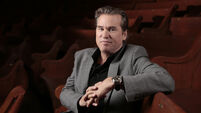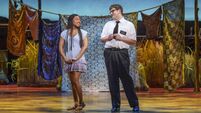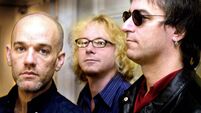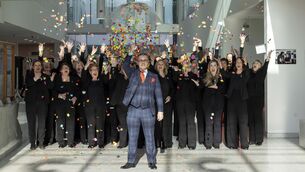Jimmy Crowley on early days in Douglas, touring with the Clancys, and drinking with Katty Barry

Jimmy Crowley in Cobh cycling his high nelly, which he bought in 1968. Picture: Chani Anderson
Jimmy Crowley grew up in the 1950s outside Douglas, on the outskirts of Cork City. His father had crossed the Lee River to live, having grown up on the north side of the city, where opera reined. Crowley remembers being mesmerised by the black box his father attached to their old valve radio. It had a lovely smell and it could create magic once the needle inside was lifted and put on a vinyl record.
“My father would be crying, sitting over in his chair with his newspaper and his eyes looking up towards heaven, at the crescendos from the music,” says Crowley. “I started to learn Italian. I’d be outside with my friends singing arias. It induced tonality into my body. I started to sing in tune. It was a good start – to get all those arias at an early age by rote.
“My father attended operas at the Cork Opera House – Puccini, Verdi. I remember the fatal night he took me out to the garden in Donnybrook, which is really high up beyond Douglas, and I saw the flames in the distance, as the Opera House was burning [in 1955].”
His father told him he was taking him to a concert at Cork City Hall one night. He wouldn’t let on who it was – it wasn’t opera; it was to be a surprise. Crowley sat down at the venue. The lights went out and four men with Aran jumpers – The Clancy Brothers and Tommy Makem – bounded onto the stage blasting out .
“My father knew I was getting into the ballads,” he says. “The boys were alive that night, dancing on stage, flying around. The songs – . Jaysus, I wanted to meet Willie Brennan! ‘Then with this loaded Blunderbuss, the truth I will unfold/He made the Mayor to tremble and robbed him of his gold.’ Where else would you get it, like?”
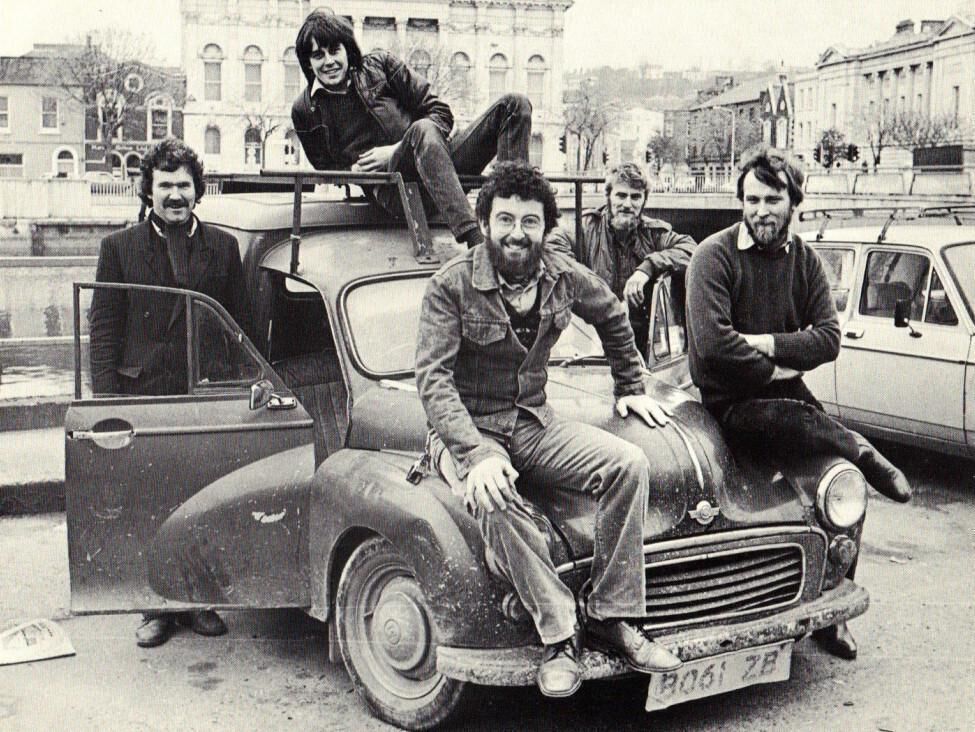
Crowley was hooked. Years later, in a neat piece of symmetry, he supported the Clancy Brothers and Tommy Makem on their final tour. Crowley, a Gaeilgeoir, used to stay with Liam Clancy when the youngest of the Clancy Brothers moved back from America to live in his custom-built wooden house in the Gaeltacht in Ring, Co Waterford. It was the scene of legendary house parties.
“Liam looked like an angel, like he was in a different reality,” says Crowley. “There'd be a rowdy session. Suddenly Liam would start reciting something by, say, Dylan Thomas: ‘In the mustardseed sun/By full tilt river and switchback sea.’ Straight away, the biggest lout in the house, the guy making all the noise, would be acting all nice. You’d see his face falling, a different expression on him, listening to Liam. He enchanted everybody. It was hypnotism, not just stagecraft. Nobody else had it.”
Crowley has just released his fifteenth album, . It’s an autobiographical tour de force, a mix of his powerful songwriting together with top-class musicians lending a hand, including John Spillane on Spanish guitar and guest vocals. It’s almost half a century since his debut album, , which he released with his band Stoker’s Lodge in 1977.
Crowley used to be all the time running folk clubs, one for example at the GAA club in Douglas where Christy Moore played. Another at The Courthouse Tavern where guests like Ronnie Drew, Terry Woods and Andy Irvine came to play. Ronnie Drew was always finagling Crowley to take him to Katty Barry’s, off the Coal Quay, afterwards, an old haunt where the Dubliners wound up whenever they gigged in Cork.
Crowley has immortalised Barry, who ran a legendary postwar shebeen, with his song . He first gave it an airing, as a teenager, in the mid-1960s. He’d started selling ballad sheets around the city for a shilling each.
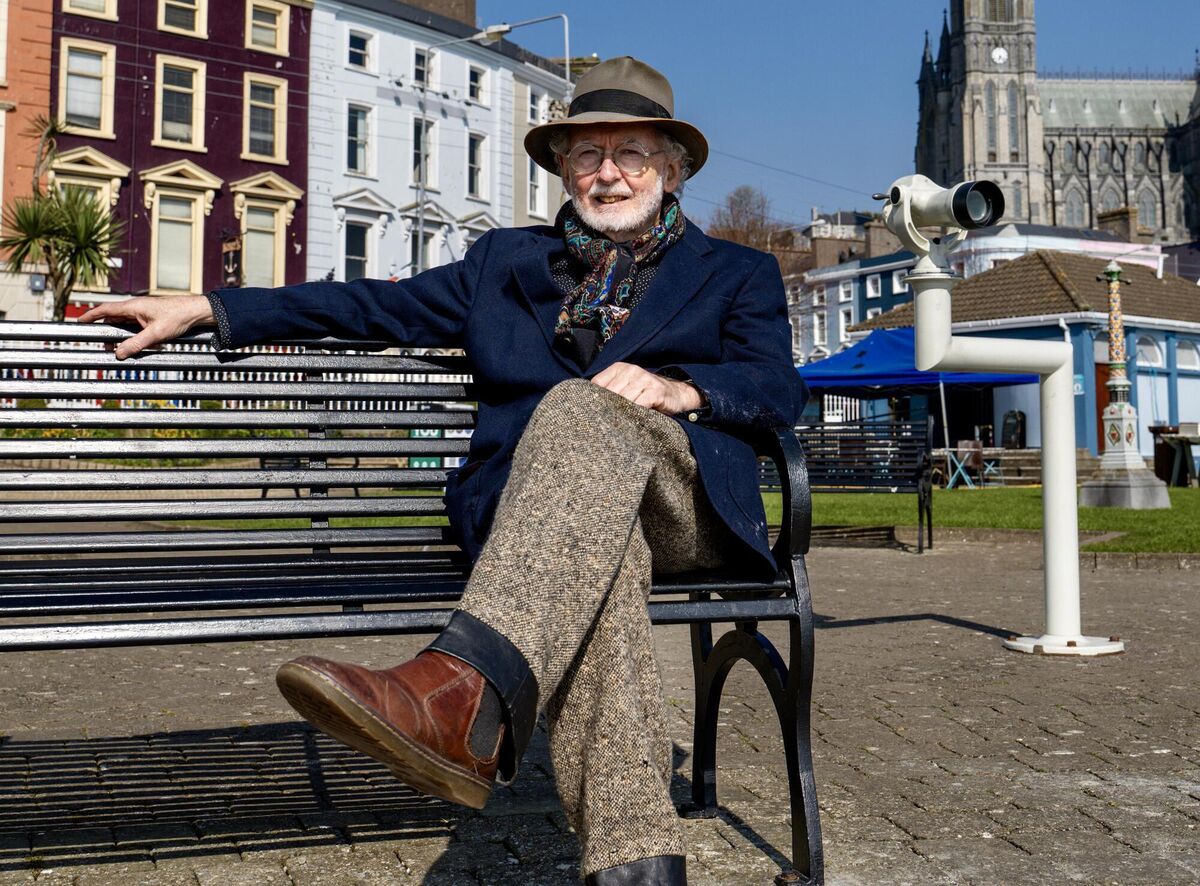
“I went to Blackpool with my sister and her friend. We did Barrack Street first. The fellas there said, ‘You’re mad to go out to Blackpool. They hate to be disturbed from matches and darts and cards.’ But we took a chance and we had a great time in Blackpool. I was a street singer. I’d clear my throat and sing a verse of . Katty was alive at the time. She was very hands-on, old Cork. Professional ladies dropped in to her for a glass of wine. It was wild in there sometimes. She was a lovely woman, Cork’s most beautiful woman in her day.
“I once had an enchanted evening in her company. It was a sunshiny Saturday afternoon. I was in Mrs Moore’s pub. I went there with Sam Collins from Douglas. We got the bus into town. It was a good distance away, a different cosmos. Here we were in the flat of the city. Who came in only Willie Harrington, the painter. I knew him. He had the longest hair in Cork. He’s still to the good. I heard him say, ‘Hello, Katty, there you are.’ She walked in, wearing a shawl. He introduced me, saying: ‘Do you know this fella is after writing a song about you?’ She took it as calm: ‘Ah, sure that’s grand. I’ll send it to my relatives in Leamington Spa.’
“On that glorious day, Katty Barry and myself became friends. ‘Come down for a bit of supper now in Dalton’s Avenue before you go out to Douglas,’ she said. Sam often said to me: ‘Do you remember what Katty Barry gave us that night after the fat sausages, the bread and the tea? She gave us an orange each for the road.’ There were no taxis. We couldn’t afford one anyway. We had to walk out to Douglas, or Donnybrook in my case.”
- Jimmy Crowley’s album is released Friday, April 4. See: www.jimmycrowley.com
Jimmy Crowley started collecting songs at 16 years of age. In 2002, he began writing a weekly column for the Evening Echo newspaper about the origins of Cork’s songs. Remarkably, he continued the endeavour for 22 years, without fail, sometimes filing his column from a hospital bed. He has bequeathed to the music- and history-loving public an invaluable archive.
His first of 1,125 entries was about , which has its roots as a loyalist ballad going back to the United Irishmen’s 1798 rebellion. He singles out Cork is an Eden, a song he recorded in his album, , as a favourite entry.
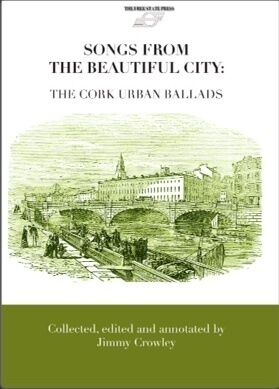
“ is a song that was never finished,” he says. “There's a mystery about it, as if you didn’t know what happened to this fella’s life. It's a gorgeous song – ‘Cork is Eden for You, Love, and Me.’ There was a nice air to it. I just added to it. It mentions Daunt Square having two sides, which is mathematically incorrect, of course. The kind of stuff wouldn’t hold up in trigonometry! And it mentions clubs like the Gutter Club, on a lane off North Main Street, which was a club famous for disputation where all the wigs, wags, talkers and philosophers met in the eighteenth and nineteenth century.”
